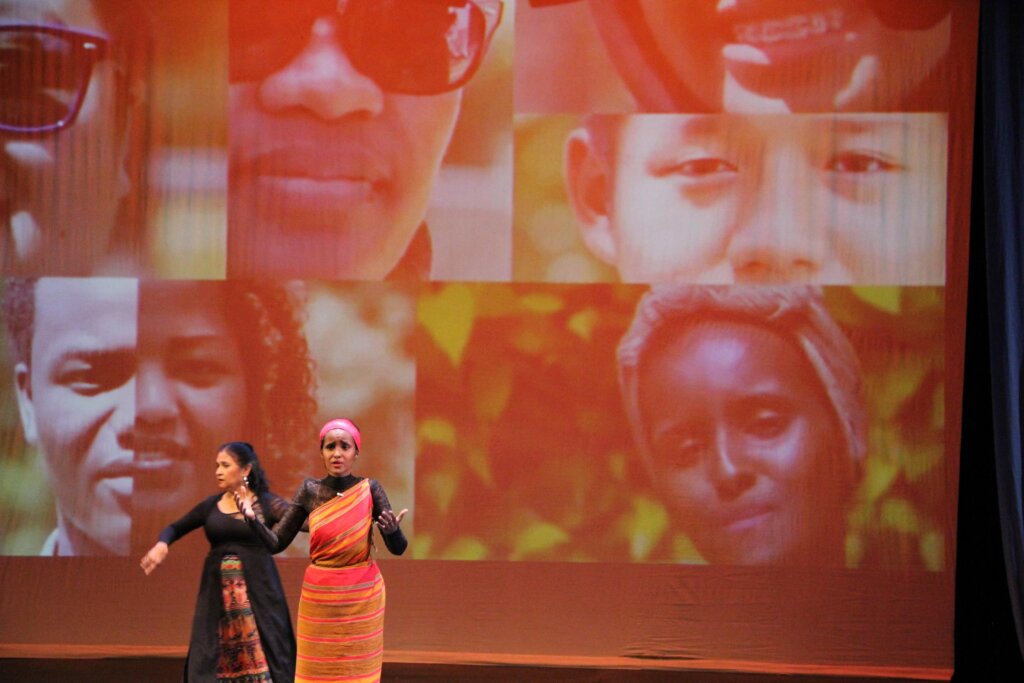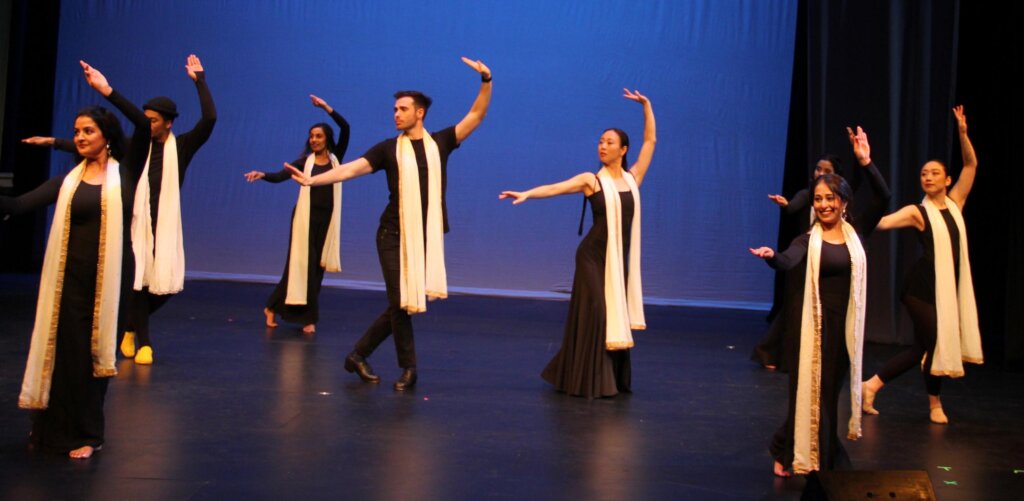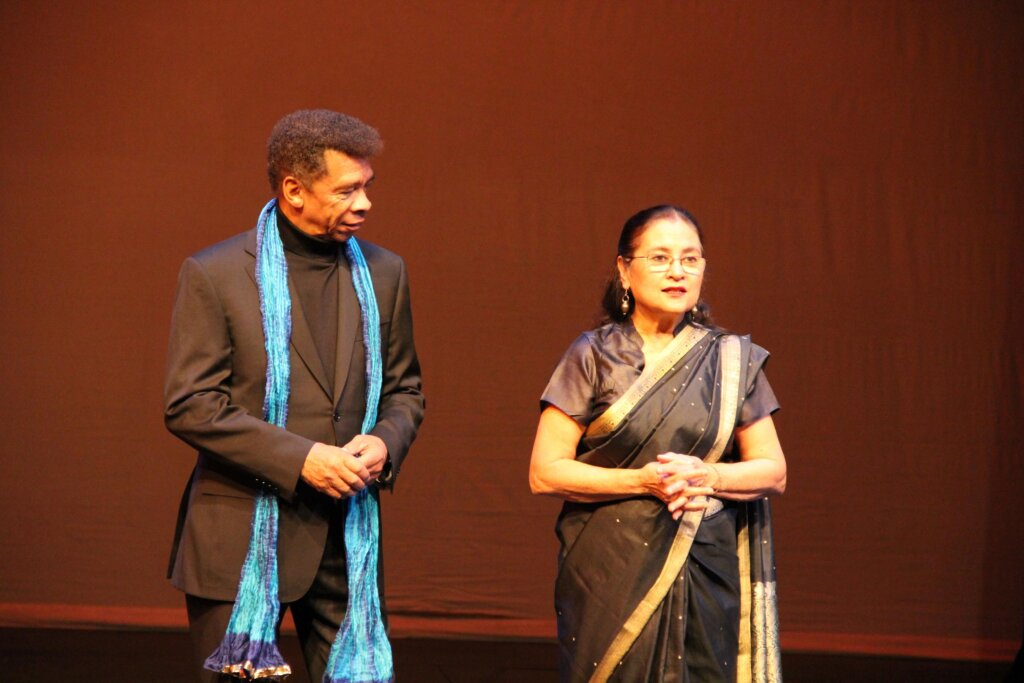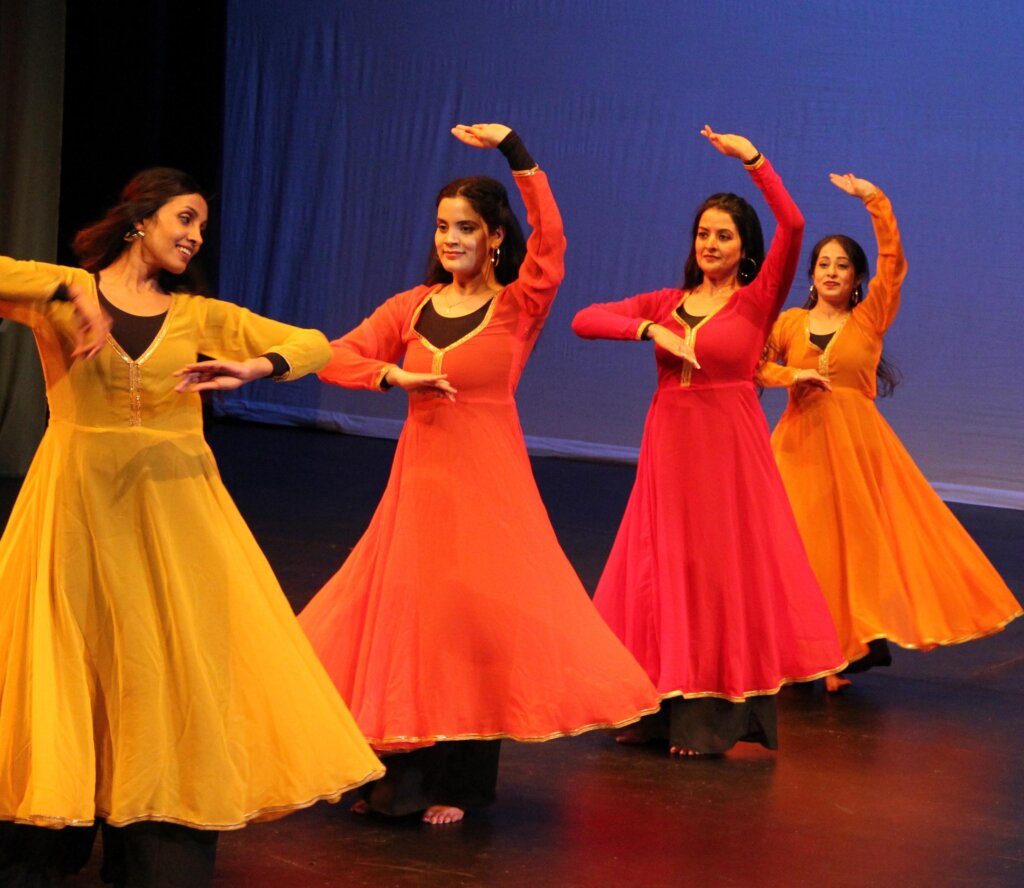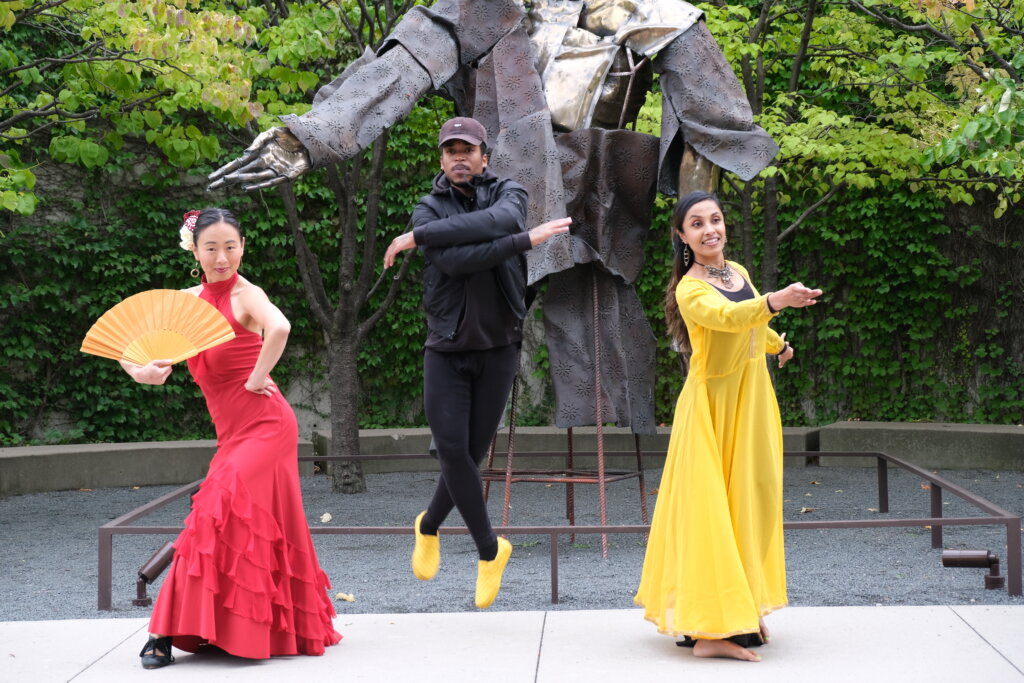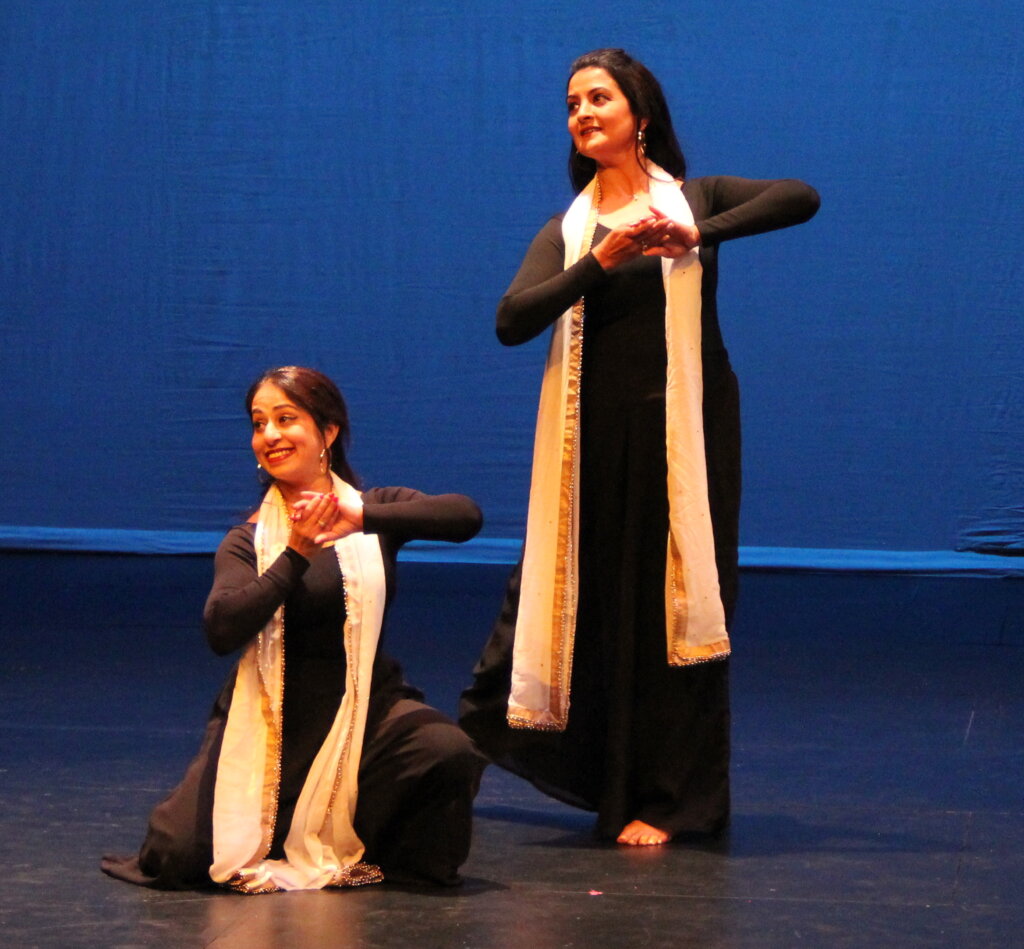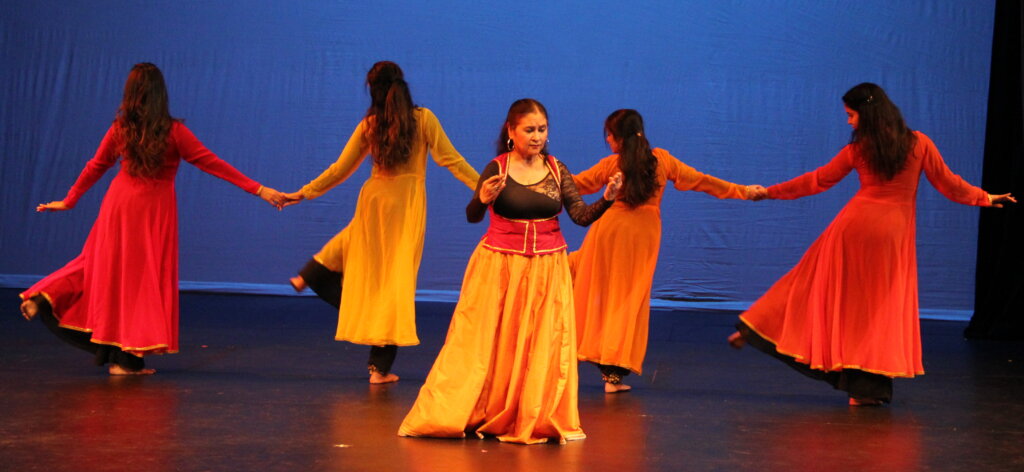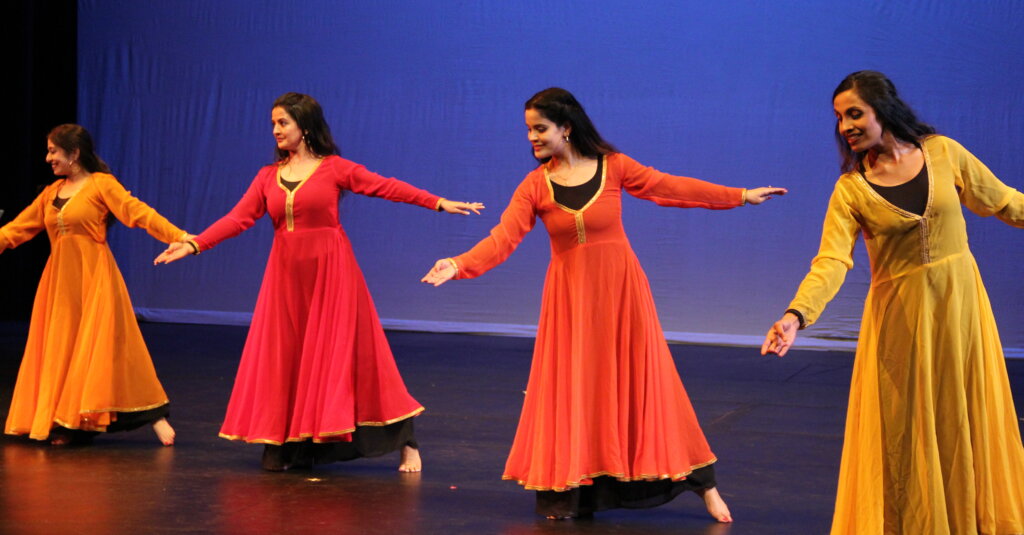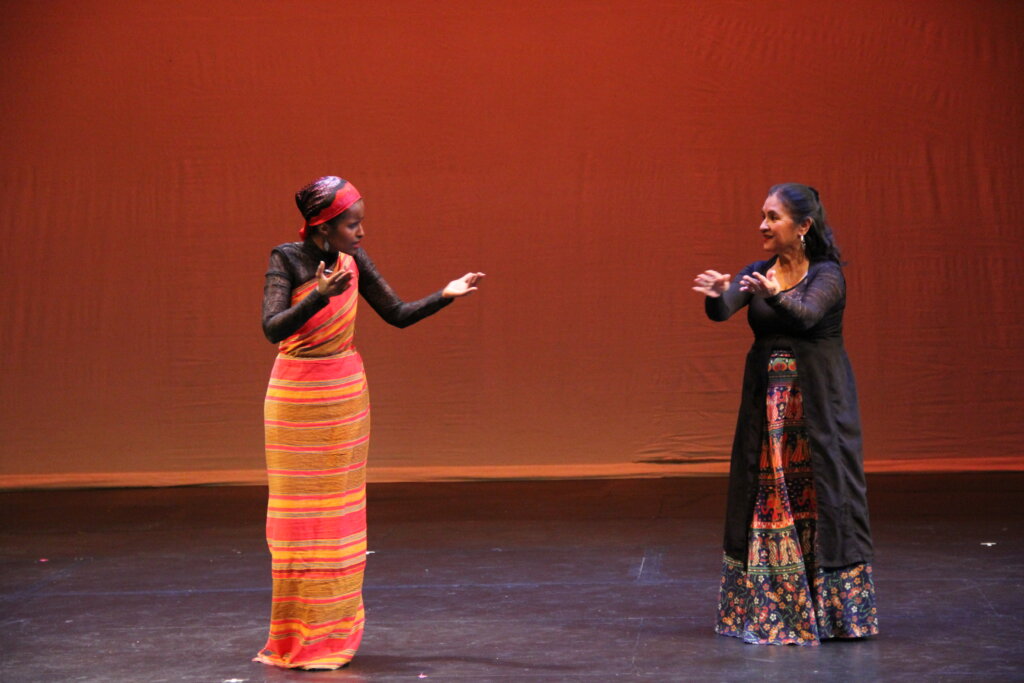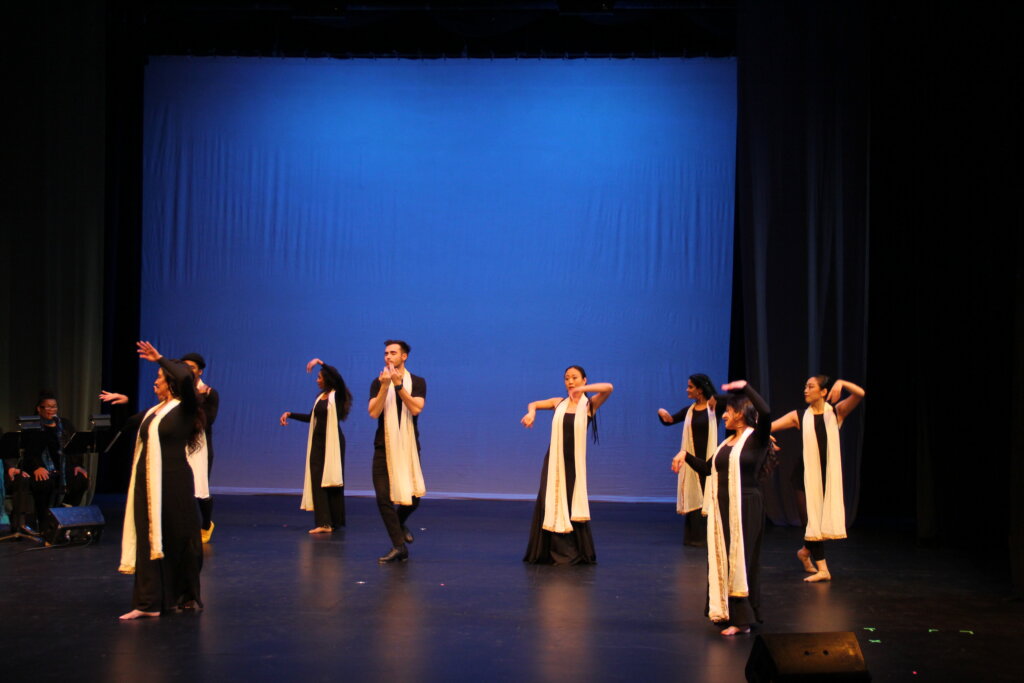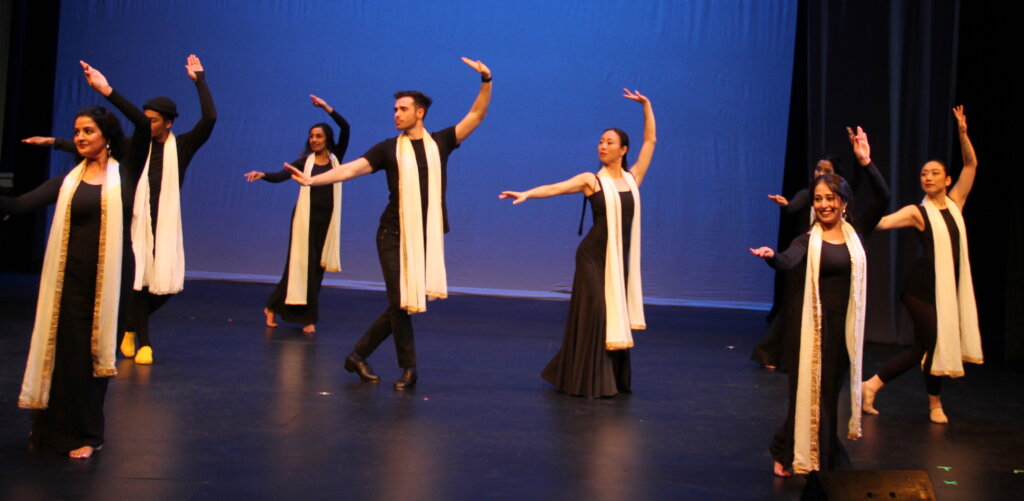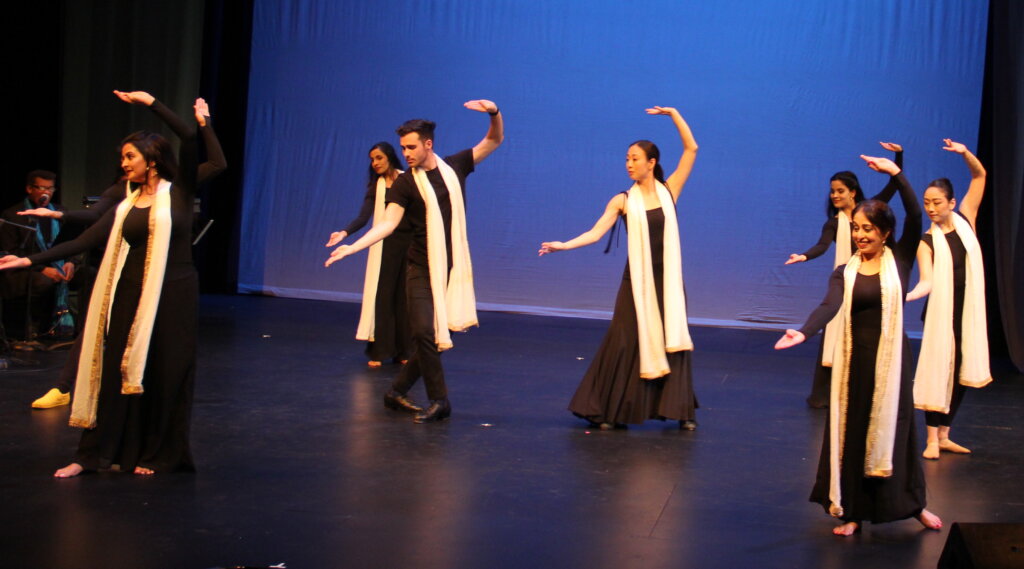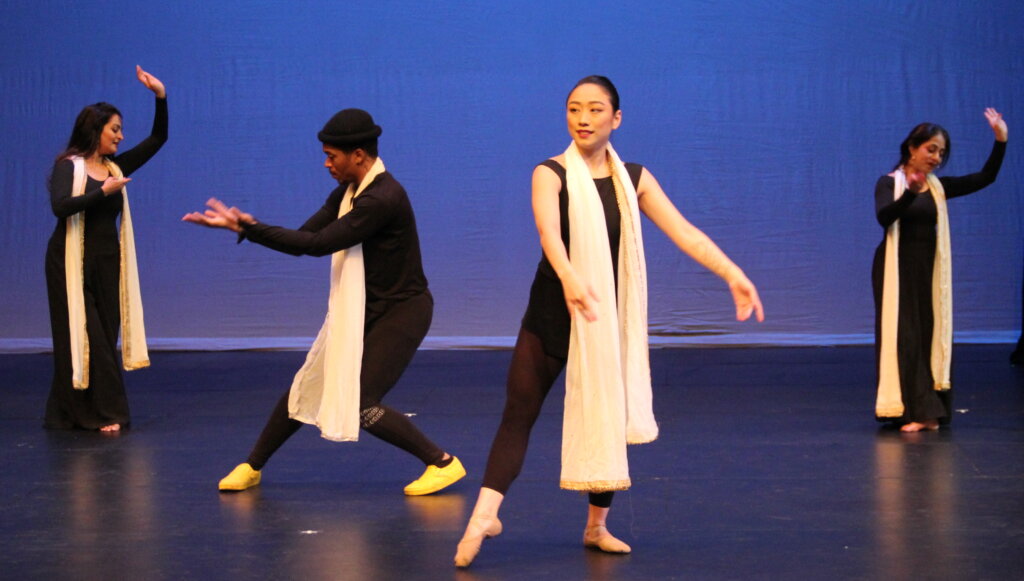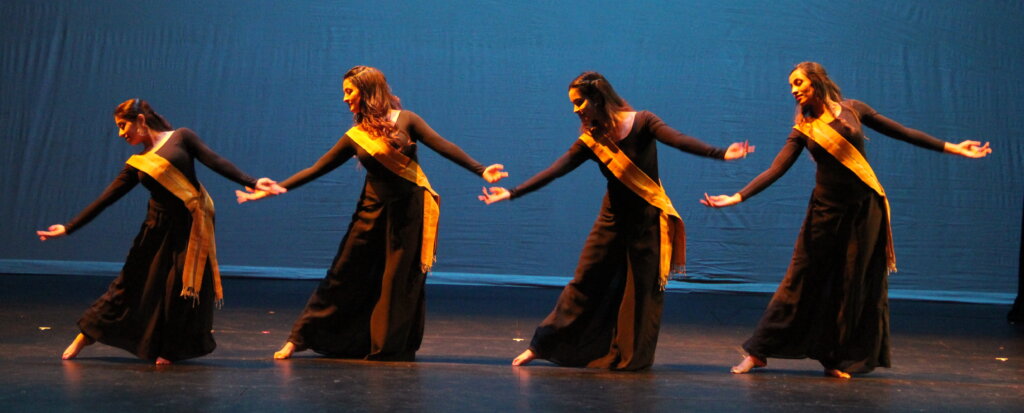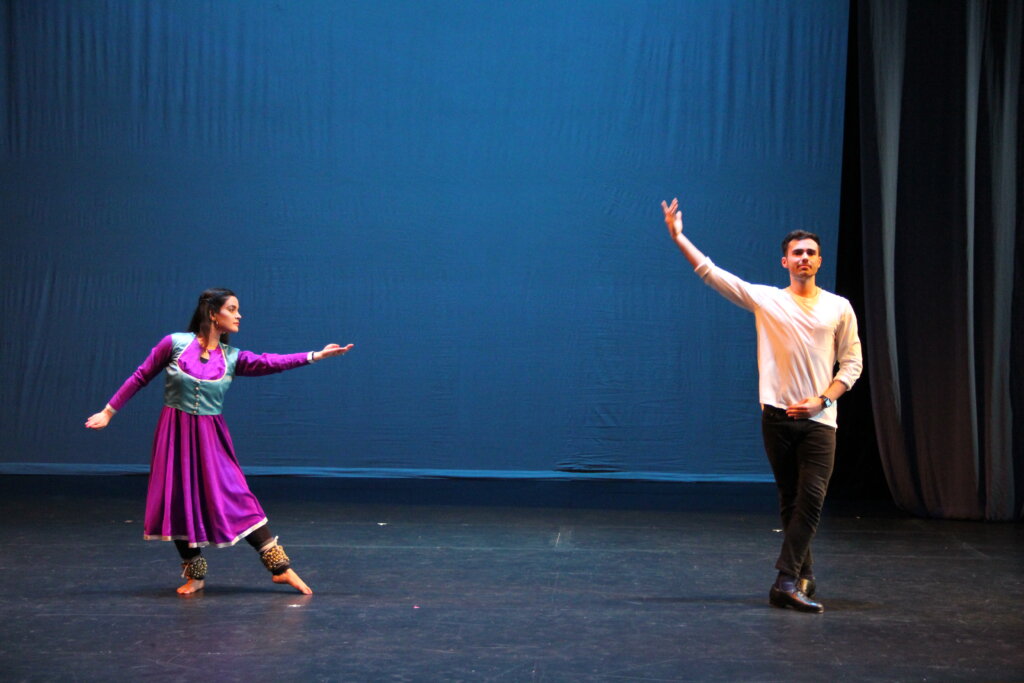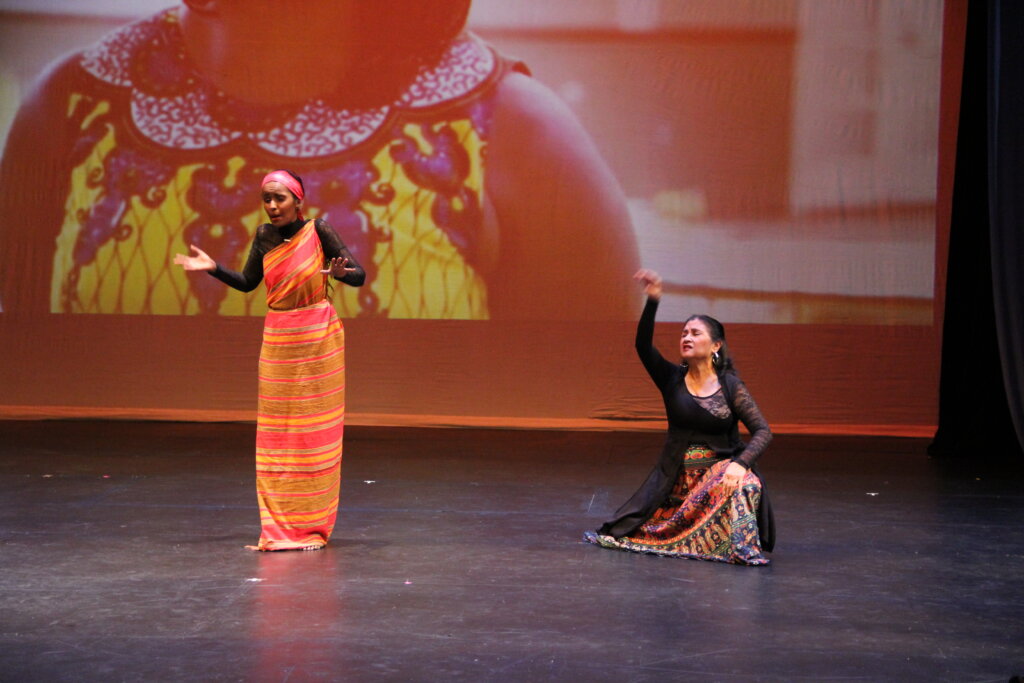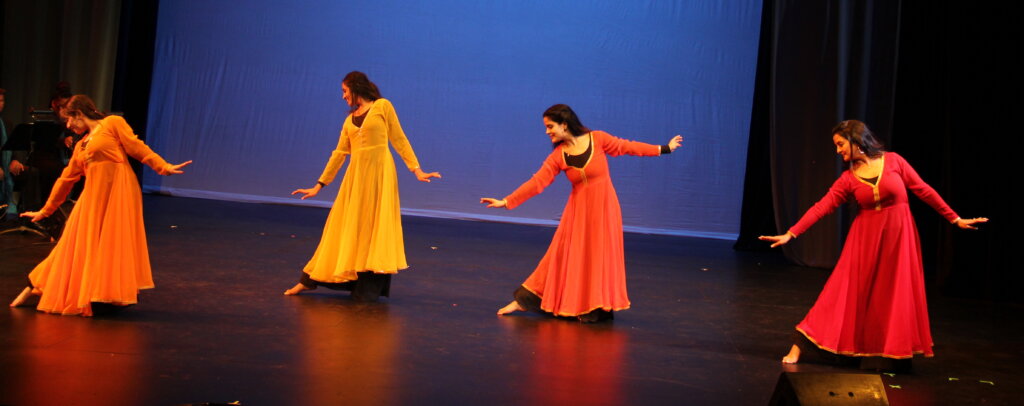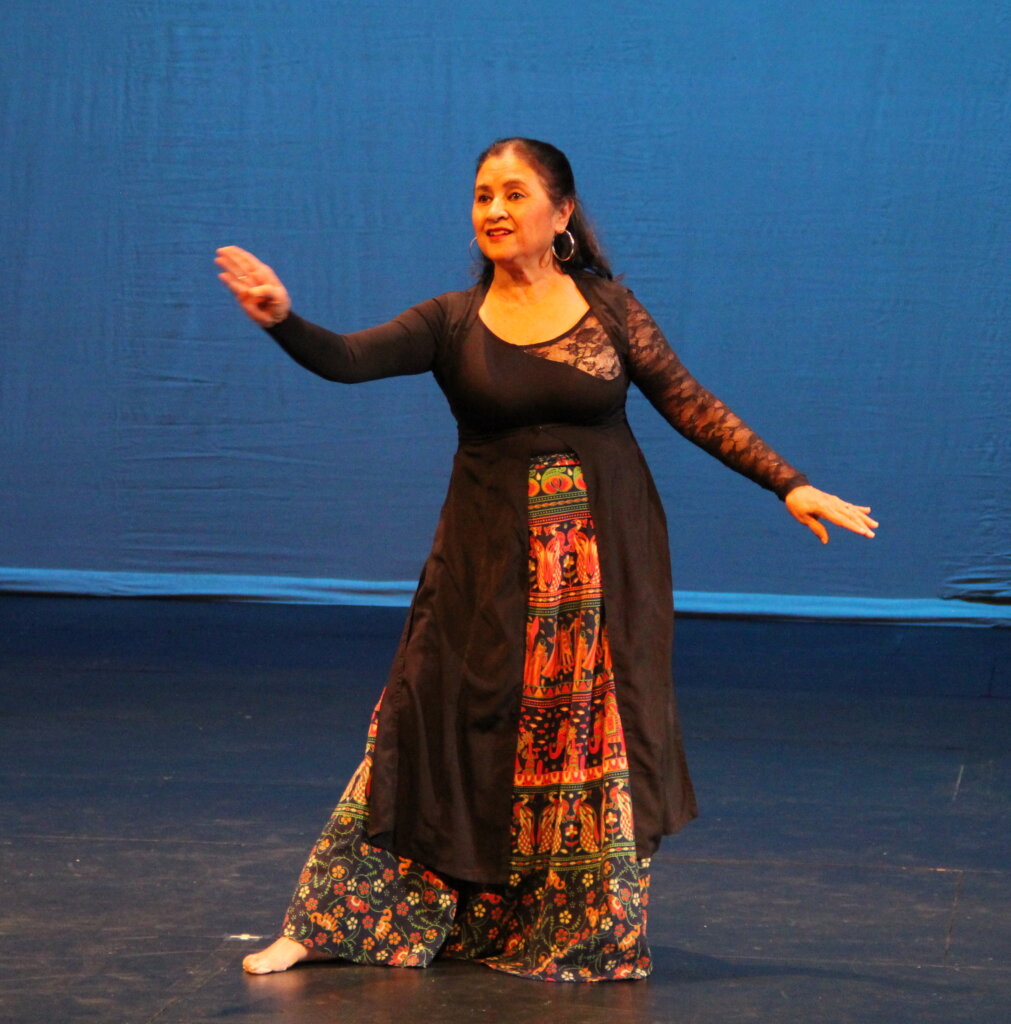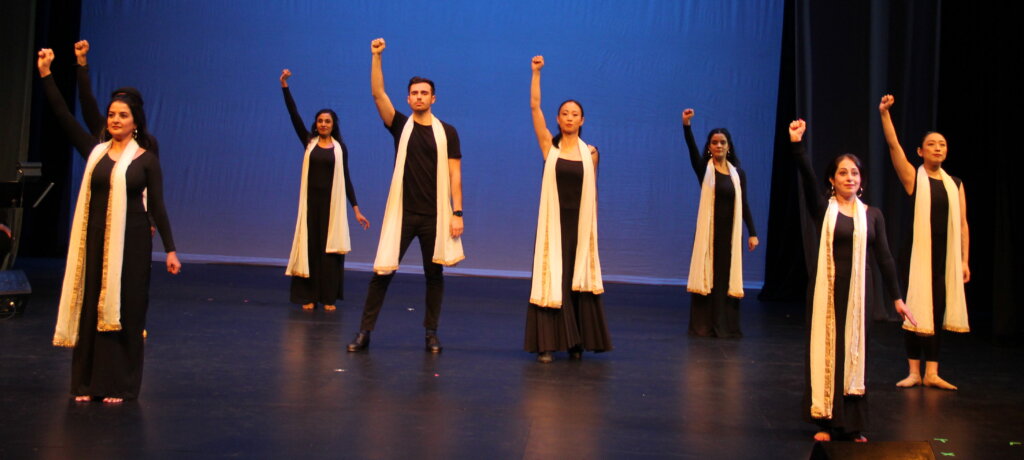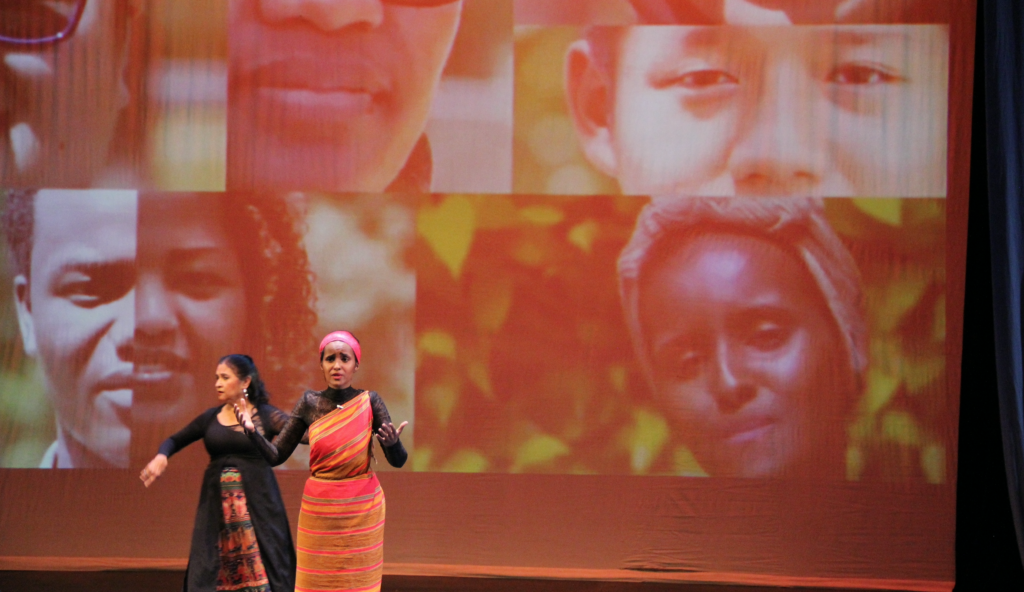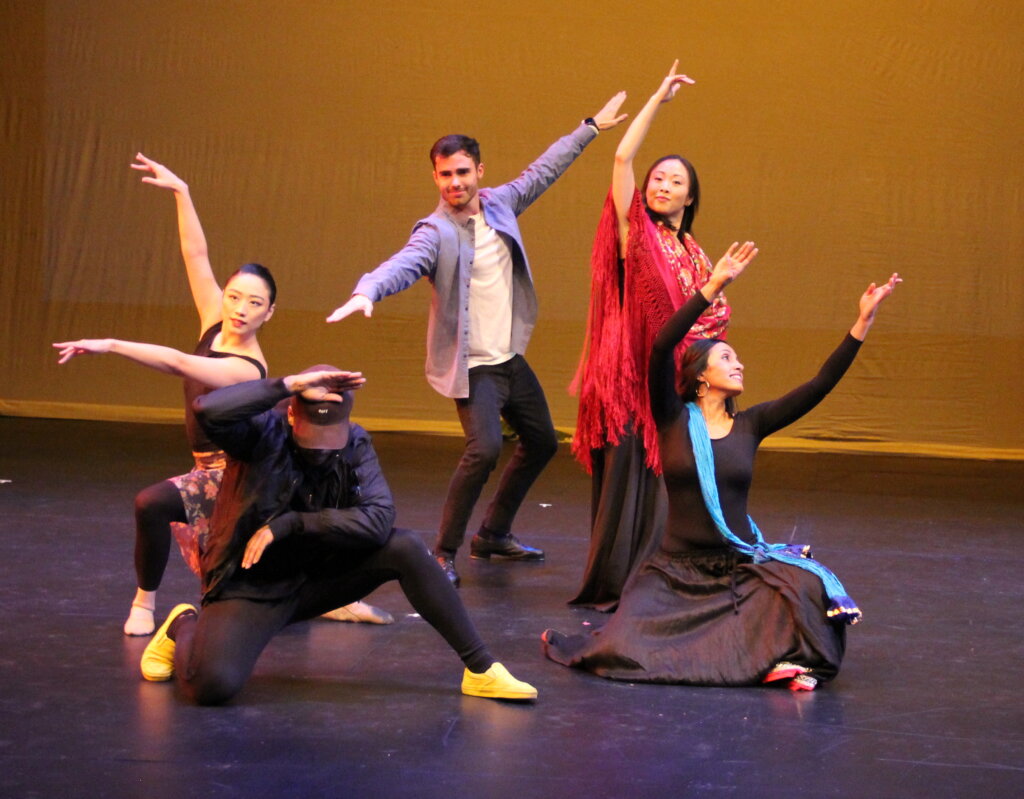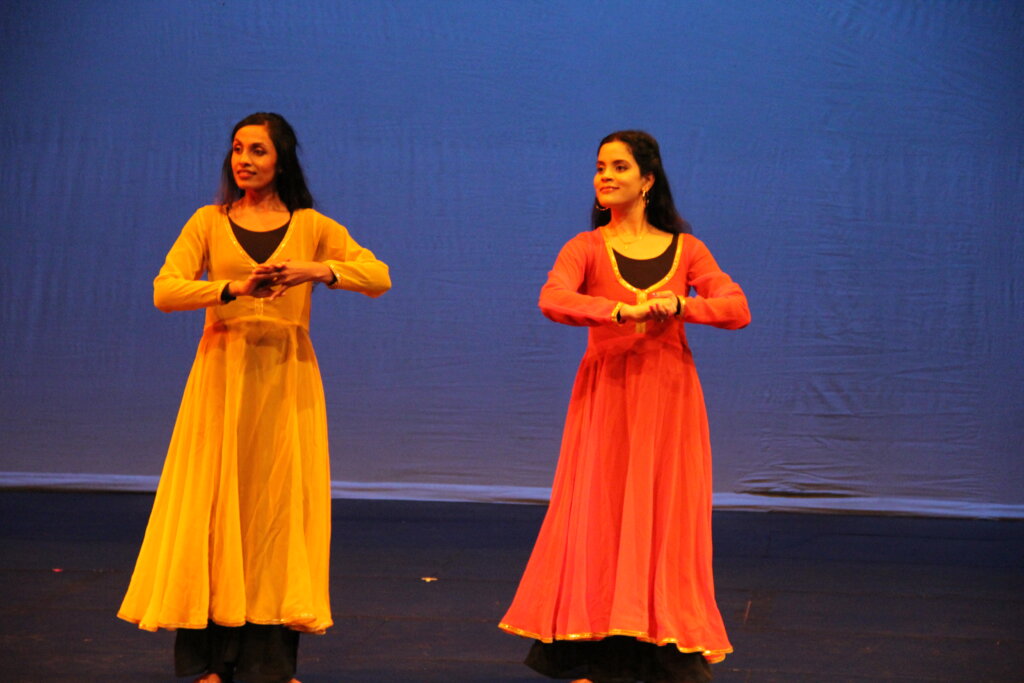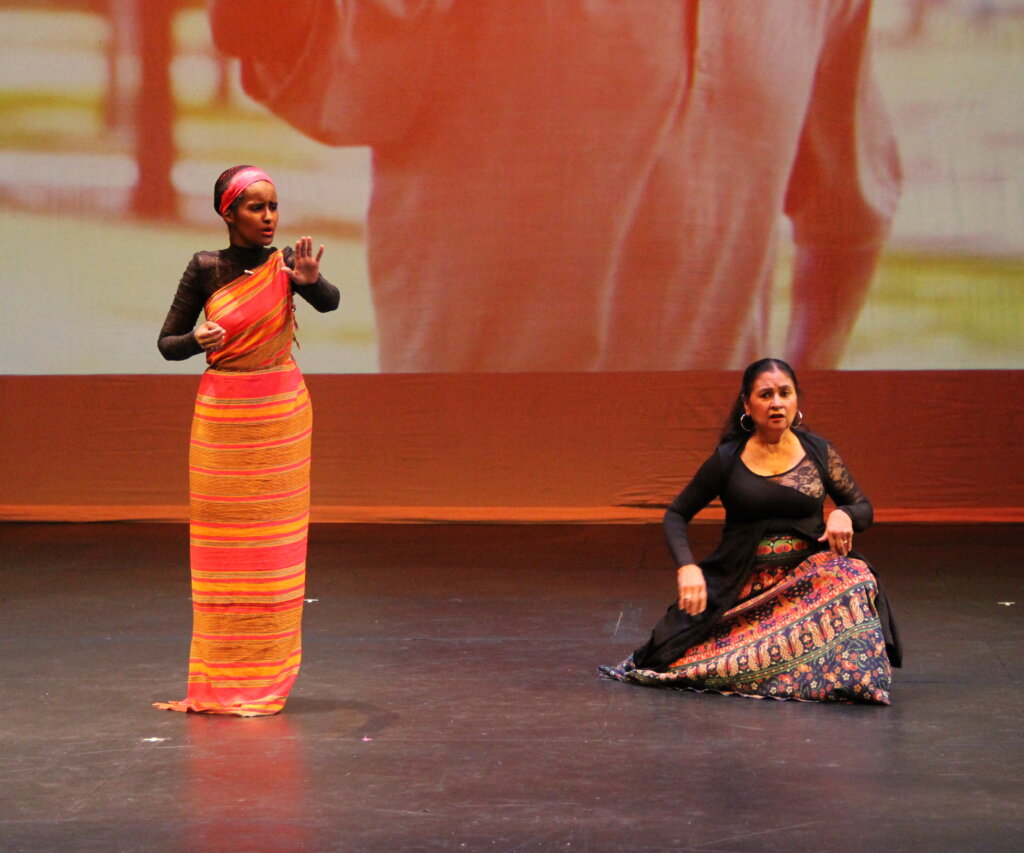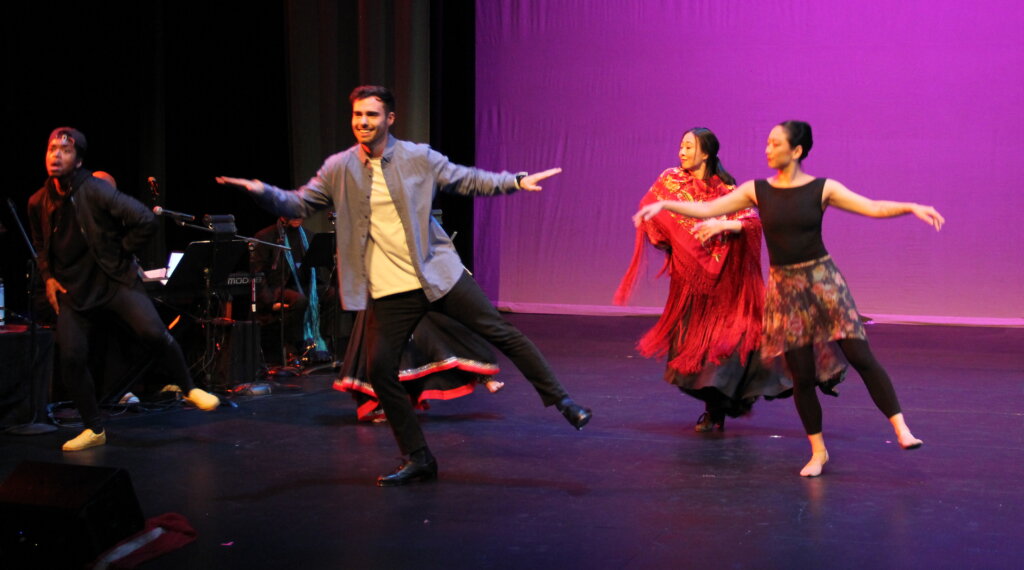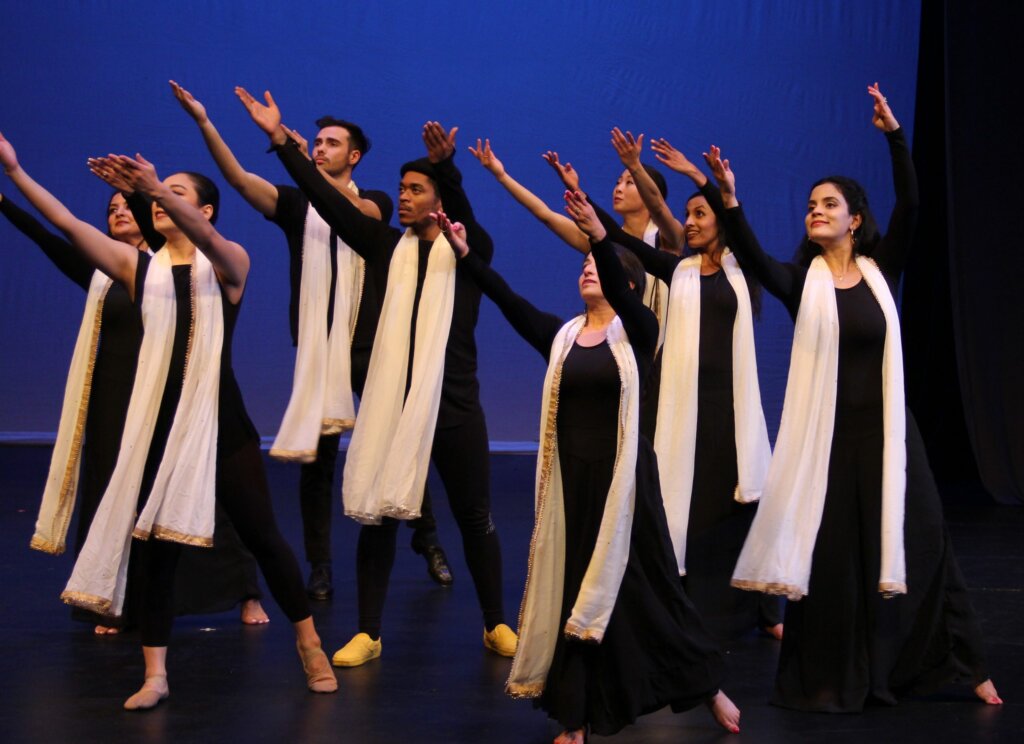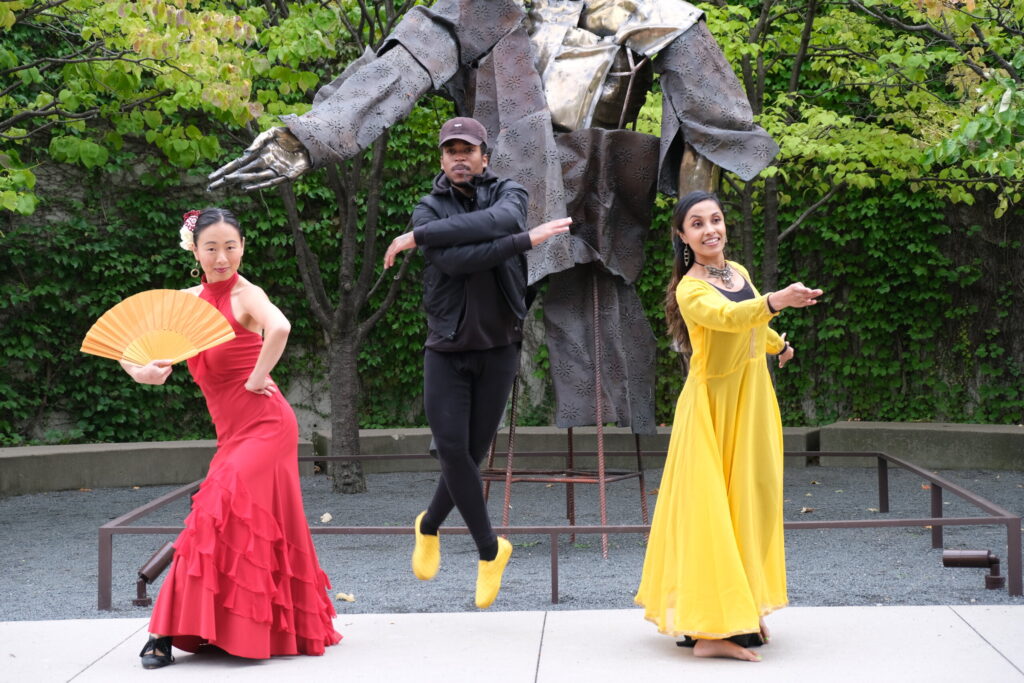
Shaamya – Of Equality
Inspired by the poetry of writer and activist Kazi Nazrul Islam (1899-1976) and using a mixture of Kathak and cross-cultural dance styles, music, and spoken word poetry, Of Equality advocates for racial, gender and cultural equity through art. Juxtaposing past and present fights for equality shows that although we still have much to accomplish, there is reason for hope.
Inspired by the poetry of writer and activist Kazi Nazrul Islam (1899-1976) and using a mixture of Kathak and cross-cultural dance styles, music, and spoken word poetry, Of Equality advocates for racial, gender and cultural equity through art. Juxtaposing past and present fights for equality shows that although we still have much to accomplish, there is reason for hope. This production premiered at the Park Square Theatre November 19 – 21.
A Note From the Choreographer
Namaste! Greetings to you!
As the artistic director of Katha Dance Theatre, I have a very great interest in creating spaces and platforms for cross-cultural storytelling and in stimulating critical discussion that challenges inequality at the intersection of culture and social justice. I am also deeply influenced by my family and friends as well as fellow artists and change-makers from the past, present and beyond.
As a choreographer, my desire was to create dance that is based on a poem called ‘Shaamyabadi’ (Of Equality) written by the rebel poet Kazi Nazrul Islam in 1925. He wrote “Let us transcend all barriers, let us forsake all smallness and accept our differences to embrace each other!”
SHAAMYA – OF EQUALITY, by its very nature, contributes to cultural and aesthetic diversity. Of Equality attempts to draw parallels between the experiences of today’s communities of color and those expressed by Nazrul Islam back in the early 20th century. Using a mixture of dance, music, and spoken word poetry, it juxtaposes past and present fights for racial, cultural and gender equity.
I invited my friend, J.D. Steele to compose the music for it. We began work on this project over two years ago because of the many challenges faced by people of color in our country. Little did we know when we started how the homicide of George Floyd and the resulting national protests would make our project even more timely. Thank you for supporting this important work. I hope it touches your heart, and your help will make this world a better place to live for all of us! Namaste….
-Rita Mustaphi
A Note From the Composer
I have spent a lot of my career collaborating on genre blending projects. I have worked on Flamenco with Susana di Palma, Greek with Marcela Lorca and the late great Lee Breur, Jazz with Christian McBride, and now this project with Rita Mustaphi. What an honor for me. These projects have been extremely gratifying for me to work on. This is my second project with KDT. The first one, we took on a tour in India. Music is truly a universal language and I am proud to be a conduit of its inspiration.
-J.D. Steele
Crew
Artistic Personnel
Concept, script, choreography & direction: Rita Mustaphi
Music composition: J.D. Steele
Traditional poetry source: Kazi Nazrul Islam, ‘Abdu’l-Bahá
Performers
Dancer & recitation – dance syllables: Rita Mustaphi
Lead vocals: J.D. Steele
Spoken word poetry: Ifrah Mansour
Additional vocals: Jevetta Steele
Keyboard & vocals: Billy Steele
Drums & percussion: Abhinav Sharma
KDT ensemble: Sarika Haris, Nivedita Sahni, Madhulika Srikanth, Shilpi Chatterjee
Guest artists: Amanda Dlouhy, Kortland Jeray Jackson, Samantha Meryhew, Jacob Nehrbass
Crew
Stage Manager: Mark La Course
Costume Designer: Maitreyee Pahari
Lighting Designer: Mike Grogan
Video Editors: Aaratrika Mondal & Jalpa Mathur
Lightboard Operator: Simon VanVactor-Lee
Sound Engineer: Charlotte Deranek
ASL Interpreter (Sunday Show): Rosalinda Estrada-Alvarez
Sound Engineer: Charlotte Deranek
ASL Interpreter (Sunday Show): Rosalinda Estrada-Alvarez
Discussion Moderator (Sunday Show): Rachel Wandrei
Acknowledgement
This project is supported in part by the National Endowment for the Arts. To find out more about how National Endowment for the Arts grants impact individuals and communities, visit www.arts.gov. It is also supported by a grant from St. Paul’s Cultural STAR program. This activity is made possible by the voters of Minnesota through a grant from the Minnesota State Arts Board, thanks to a legislative appropriation from the arts and cultural heritage fund. Shaamya – Of Equality was supported by New Music USA. To follow the project as it unfolds, visit my project page. It is also made possible by funding from the RBC foundation, the McKnight Foundation, the Target Foundation, the A.B. Walker Foundation, and by the generosity of KDT’s individual donors.
